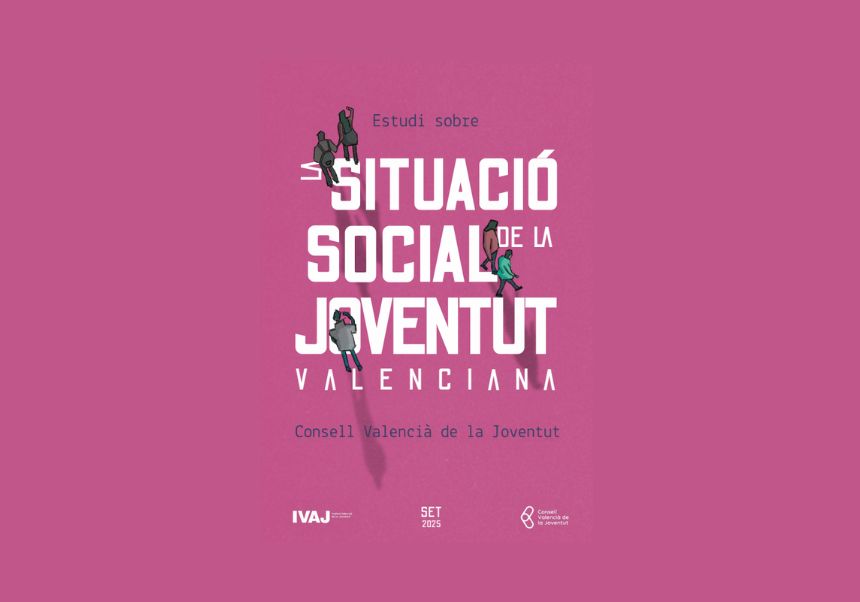On September 15 2025, the Valencian Youth Council presented the results of a broad research conducted by Youth Chair of the Universitat de València. The study provides an updated overview of the current situation of young people within our territory.
The report has been carried out by David Gil Solsona, professor at University Jaume I and member of the Youth Chair at Universitat de València, together with Raül Beltrán Benages professor at University Jaume I. The research analyses the reality of Valencian youth, between 12 and 34 years, not only as an age gap but also as a vital transition stage, conditioned by education, work, housing, health and free time.
By means of the analysis of statistic data and the inclusion of discussion groups, the study offers a broader and more critical overview of the young people life conditions. Moreover, it shows the main challenges that Valencian society experiences when talking of youth polices.
Important results:
- More diverse and more young people: There has been a growth of young population of more than 300.000 people from 2020 and an 28% are foreign born, with a large amount who are fully integrated in the Comunitat Valenciana.
- A growing but uneven education: In the past decades, the level of training has improved, with a 40% of university graduates between 24 and 26 years. However, inequalities due to family background or ethnicity remain and the FP (Vocational Training) continues to be underrepresented.
- Polarised labour market: Only half of young people are currently working. Although the occupation rate of those who have higher studies is better, a 29% suffers from overqualification. The labour market shows a growing polarization between technical professions and unqualified professions.
- Barriers to emancipation: Only the 15% of young population manage to emancipate before age 30, which is less than half of those who could in 2008. The increase of the income of young people does not compensate the surge in housing prices, which almost represents the 75% of the wage of a person between 25 and 34 years.
- Health and well-being: Although, in general, health is better than in other age groups, the study notices a strong increase of mental-health problems, specially in girls. Suicide is the primary cause of juvenile death, specially in boys, even tough, girls enter more the healthcare system due to suicide attempts.
- Unequal free time: The vast majority of young people (89%) expends their free time in social relationships and cultural and sports activities, however there is a increasing social gap. Young people from families with less resources, have more difficulties in doing this kind of activities.
Conclusions:
The study shows that Valencian youth is more diverse and is better trained than those from other decades, but they are conditioned by high structural barriers to emancipate, in the labour market and in mental-health terms.
The authors claim that this could foresee a society with more inequalities and more fragmented if they do not develop public and inclusive polices in which youth necessities are the main priority.




